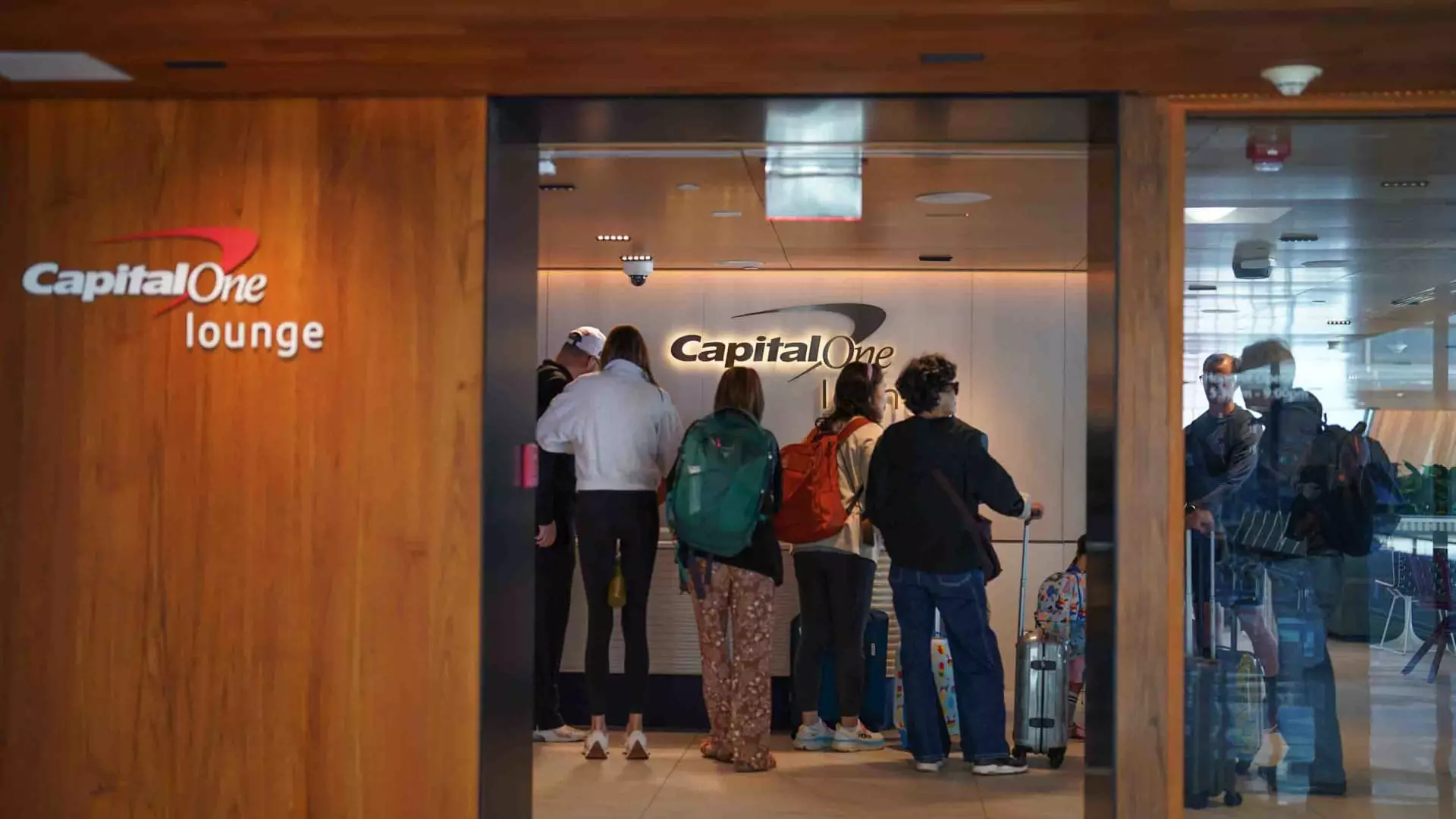In an era where constant connectivity and bustling travel schedules reign, the airport lounge has become a sanctuary for weary travelers. Yet, in a perplexing twist, comfort is becoming increasingly pricey. The recent move by Capital One to tighten access to airport lounges reflects a growing trend in the travel industry that prioritizes exclusivity over accessibility. With the ongoing surge in demand, creating a more exclusive lounge experience seems to be the driving force behind these changes, but at what cost?
Starting February 1, 2024, cardholders of Capital One’s Venture X and Venture X Business credit cards will see their complimentary guest access curtailed, necessitating hefty fees for family members and friends who wish to join them in these coveted spaces. While the rationale behind the limitation is rooted in the overwhelming popularity of lounges that often lead to overcrowding, this decision raises fundamental questions about customer value and loyalty.
The Cost of Companionship
A $125 annual fee per additional cardholder, a staggering $45 for each adult guest, and even a charge for minor guests represent a serious financial commitment designed to manage lounge traffic. This turn of events gives a sense of desperation: brands once celebrated for bolstering customer experience now apparently feel justified in implementing paywalls to simply enjoy a modicum of comfort. The requirement for primary cardholders to spend a robust $75,000 annually to enjoy the privilege of bringing complimentary guests only furthers this sentiment, locking out casual travelers and families from benefitting from a service that was once a badge of honor for premium credit card users.
Capital One’s statement touts the goal of maintaining an exceptional airport lounge experience amidst growing patronage. Still, the organization’s decision to impose barriers insinuates a reality where loyalty earns less and less while exclusivity reigns supreme. By mirroring the $75,000 spending threshold established by American Express, they seem to reinforce the notion that financial prowess equates to enhanced travel satisfaction—a notion that, frankly, feels out of touch for the average traveler.
A Shift in Travel Culture
This trend isn’t isolated; it’s reflective of a broader paradigm shift in travel culture, where exclusive spaces are becoming the norm rather than the exception. Major airlines like Delta and American Airlines have also made headlines with updated lounge access protocols that cater primarily to premium customers, differentiating between casual travelers and those with deep pockets. This culture, steeped in classism, undermines the communal aspect of air travel—a shared experience that is slowly being transformed into a divide where wealth dictates comfort.
The irony is palpable. As airfare prices dip, providing an illusion of more accessible travel, other aspects of the journey are becoming increasingly elitist. Those seeking a moment’s respite from crowded terminals now must navigate a landscape where relaxation is tucked behind a paywall—an unfortunate trend that feels counterproductive in an age where inclusivity should reign.
The Underdog Dilemma
While Capital One has positioned itself as a “challenger brand” in the airline lounge arena, the recent restrictions indicate an internal struggle between maintaining its underdog status and catering to a burgeoning customer base hungry for comfort. With the new lounges set to debut in high-profile airports like New York’s JFK, the irony of seeking to elevate customer experience while simultaneously straining financial access isn’t lost on those who frequent these spaces. Capital One’s attempt to balance demand with quality shows a company grappling with rapid growth and the implications that come with it.
What remains disheartening about these developments is what they signify; a gradual erosion of the very essence of travel—the joy of communal experiences. By embracing a more restrictive approach, credit card companies like Capital One are inadvertently fueling resentment among loyal customers whose loyalty is rewarded with greater financial demands rather than renewed enjoyment.
As lounges become increasingly overcrowded and policies grow more restrictive, the essence of luxury travel, built on shared experiences and relaxation, risks becoming a hollow replica of its former self, leaving many to ponder whether the allure of airport lounges is worth the spiraling costs.

